Jakarta, MINA – Minister of Home Affairs Muhammad Tito Karnavian issued the Minister of Home Affairs Instruction (Inmendagri) regarding Air Pollution Control in the Greater Jakarta area.
The Inmendagri contains several main things that need to be done by Regional Heads, both the Governor of DKI Jakarta, the Governor of West Java and the Governor of Banten as well as Regents/Mayors throughout Greater Jakarta, including a hybrid work system, restrictions on motorized vehicles, improving public transportation services, tightening emission tests, optimizing use masks, controlling environmental emissions and implementing green solutions, as well as controlling industrial waste management.
Director General of Regional Administration Development of the Ministry of Home Affairs, Safrizal explained, Inmendagri Number 2 of 2023 is a follow-up to President Joko Widodo’s directives at a limited meeting to improve air quality in the Jabodetabek area which was held Monday, 14 August 2023.
“Regional Heads are asked to make adjustments to work system regulatory policies, namely by implementing Work From Home (WFH) and Work From Office (WFO) as much as 50% each for ASN in the regional apparatus environment, BUMN and BUMD employees, except for those who provide direct public services/essential services. In addition, local governments in the Jabodetabek area should encourage private employees and the business world to carry out WFH and WFO according to the policies of the relevant agencies/business actors,” said Safrizal in a press statement on Tuesday according to a statement received by MINA.
Also Read: UAR Deploys 14 Volunteers to Aceh for Search, Rescue and Humanitarian Response
He hopes that the WFH-WFO policy can reduce mobility which causes air pollution, considering that most people use motorized vehicles, either cars or motorcycles, for activities such as going to work.
Safrizal said, in order to optimize the use of mass or public transportation modes, the use of non-emission vehicles or electric vehicles.
He stressed, based on existing data, one of the factors causing air pollution in Greater Jakarta was contributed by the transportation and industrial sectors.
“Regional heads were instructed to improve public transportation services by ensuring the capacity of the number of public vehicles, adding routes and transport points, overcoming disturbances in the busway lane and providing incentives or price discounts so that people are encouraged to switch from private vehicles to public transportation,” said Safrizal.
Also Read: BNPB Deploys Aircraft to Deliver Emergency Aid to Flood-Hit Areas in Aceh
In the Minister of Home Affairs it was also instructed to tighten the vehicle emission test program and increase supervision as well as disseminate information on the provision of facilities for users of non-emission vehicles or electric vehicles, incentives for electric vehicles such as odd-even exemption, priority parking or reduced parking fees.
Safrizal said, controlling environmental emissions and implementing green solutions is carried out through prohibiting open burning of waste, controlling pollution from construction activities, watering roads to reduce dust, optimizing tree and plant planting in public spaces to narrow spaces, using water curtains/green curtains and weather modification through artificial rain.
“Local governments should control industrial waste management by increasing supervision, encouraging the use of scrubbers in the industrial sector, conducting emission tests and imposing fines on violators, rejuvenating equipment, and increasing renewable energy in industry,” said Safrizal
Safrizal said that efforts to control air pollution in Jabodetabek need to be carried out by strengthening the Forkopimda coordination line and optimizing Satpol PP in enforcing regional regulations and or regional regulations regarding air pollution control. (T/RE1/P2)
Also Read: MER-C Medan Deploys Medical Team to Support Flood Victims in Sumatra
Mi’raj News Agency (MINA)






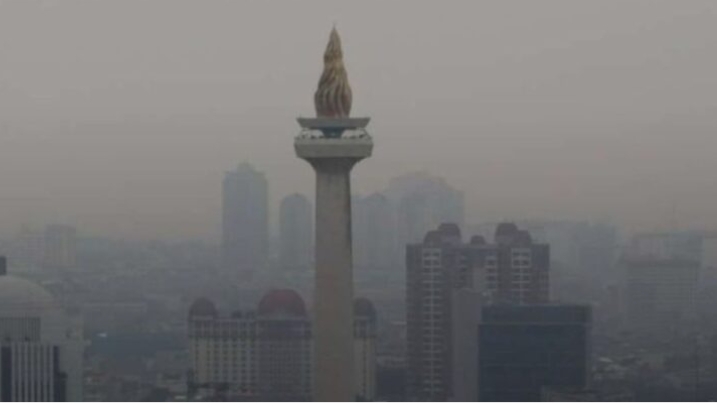



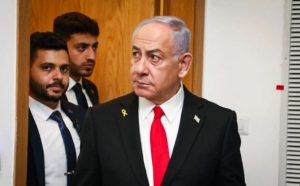




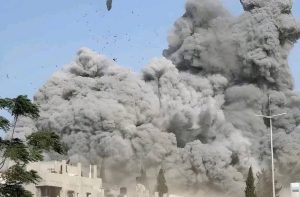
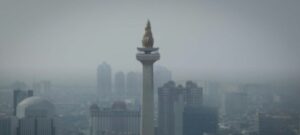
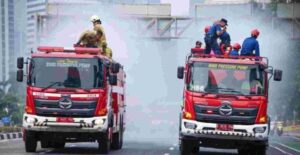

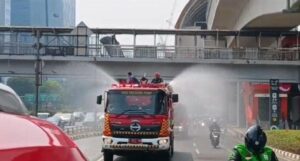
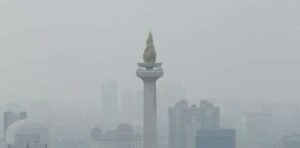






 Mina Indonesia
Mina Indonesia Mina Arabic
Mina Arabic